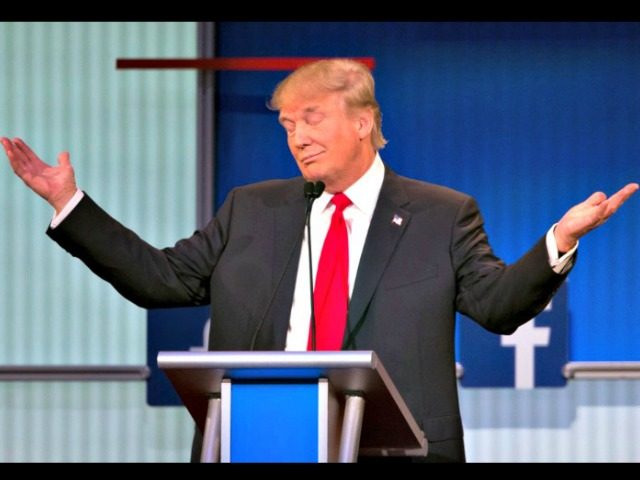On October 8, as then-Republican presidential nominee Donald Trump was preparing to square off against Democrat Hillary Clinton in the second of three general election debates, a years-old Access Hollywood tape resurfaced in which Trump could be heard making disparaging comments about women.
The tape rocked the race — and, as revealed by Breitbart Senior Editor Joel B. Pollak and historian Larry Schweikart in their new book How Trump Won: The Inside Story of a Revolution, the tape likely cost Trump the state of New Hampshire in the general election.
As anyone who followed the election knows, the contents of the Access Hollywood tape were explosive; election observers and the media believed it would be the “October surprise,” or Magic Bullet, that might finally end Trump’s candidacy once and for all.
As the media and mainstream Republicans like Paul Ryan and Jason Chaffetz piled on, Trump quickly issued an apology: “This was locker-room banter, a private conversation that took place many years ago. Bill Clinton has said far worse to me on the golf course — not even close. I apologize if anyone was offended.”
Of course, Trump would go on to be elected president. But in How Trump Won, Pollak and Schweikart explain that while the Access Hollywood tape did not fatally cripple Trump, it undoubtedly hurt him among several key constituencies, and in the state of New Hampshire, where Clinton ultimately prevailed by a margin of less than 3,000 votes.
“Sex Bomb #2 did have an effect,” Schweikart writes in Chapter Nine, “The Trump Revolution.” “Bannon admitted in a text to me that ‘it’s killing us with women’ in New Hampshire. Absentee counts would reveal that immediately after the tape came out there was a spike in voting for Libertarian candidate Gary Johnson by Republicans. The tape almost certainly was a factor in the closeness of Florida, and likely cost Trump New Hampshire (by a razor thin margin).”
Research conducted by Pollak and Schweikart, and confirmed based upon proprietary polling undertaken by Richard Baris, also helped to identify a key constituency for which the Trump tape was a swing factor: so-called “wannabe elites.”
Schweikart writes:
“Nonetheless, Baris’s polling had identified a group he called the “wanna-be elites”—mostly white voters in places such as Charlotte, North Carolina, or Loudon County, Virginia—were particularly offended by the Access Hollywood tape. Baris was convinced that this was what ultimately happened to the “monster vote”—that Trump had 64–68 million lined up to vote for him before the tape, but the “wannabe elites” dropped him, even as the low-propensity voters stood their ground. Though I didn’t see this analysis by Baris until later, it supports my suspicion at the time that Trump had Clinton on the ropes and was poised for a landslide before the tape.”
The impact of the Access Hollywood tape and its contents on the outcome of the general election will be debated among political scientists and historians for decades to come.
Of course, Trump won the election for many reasons; however, as Pollak himself noted in a column on Monday, one reason stands above all others: “Donald Trump won his party’s nomination and the general election itself because he, alone among Republican candidates, dared to defy the media and to speak directly to the American people.”
How Trump Won: The Inside Story of a Revolution is available now from Regnery Publishing in e-book form, both on Amazon and at Barnes & Noble, and will be released in paperback on February 27.

COMMENTS
Please let us know if you're having issues with commenting.